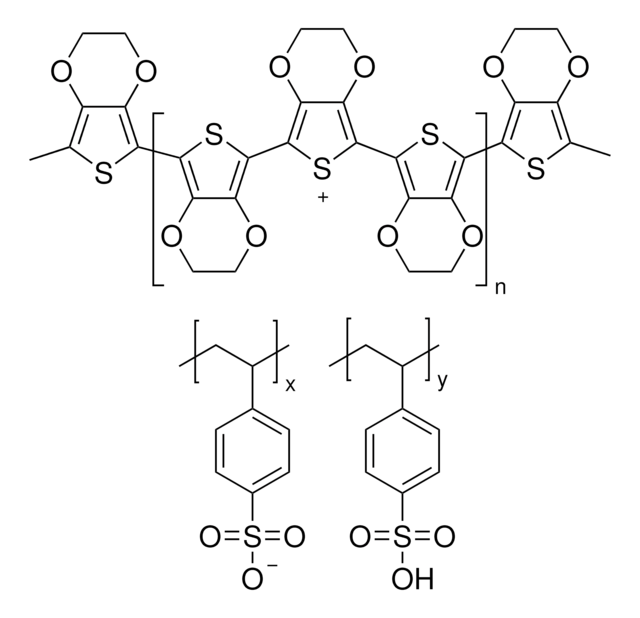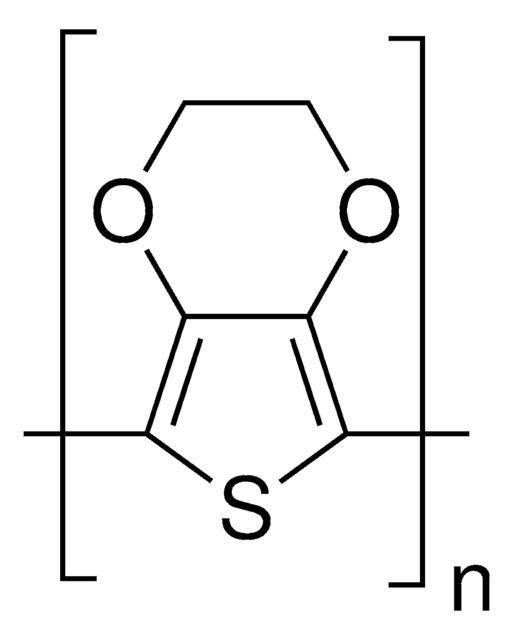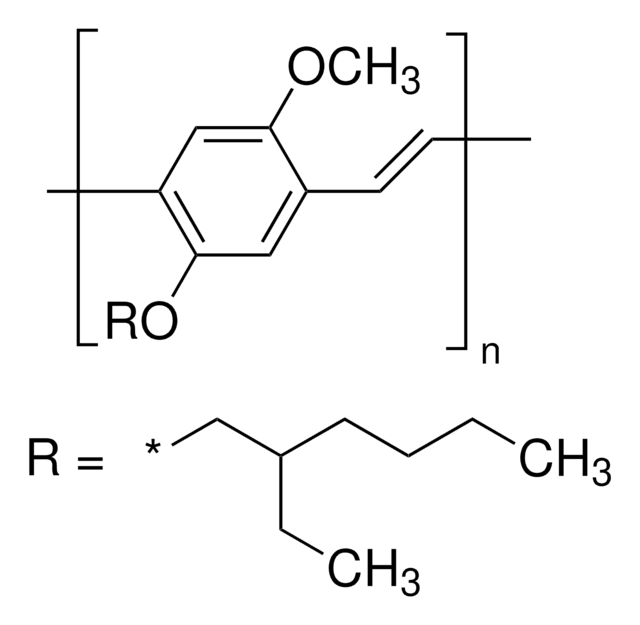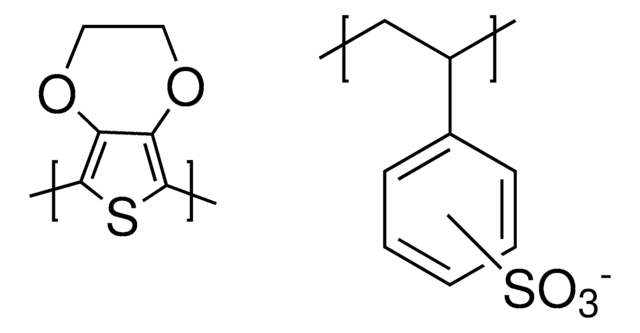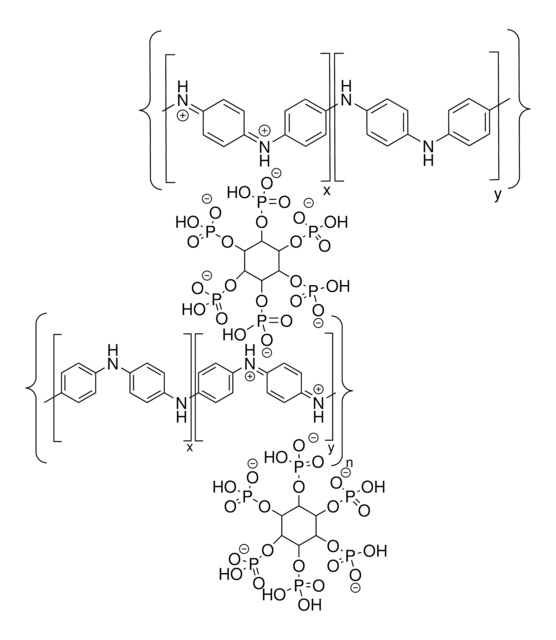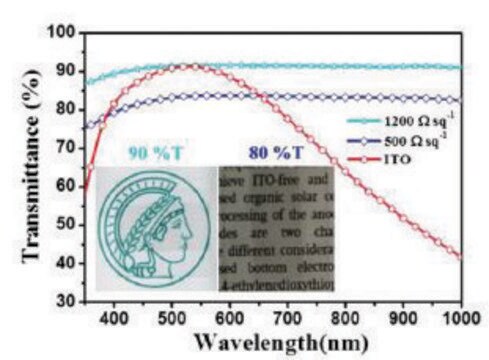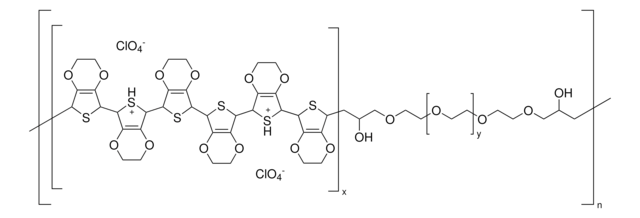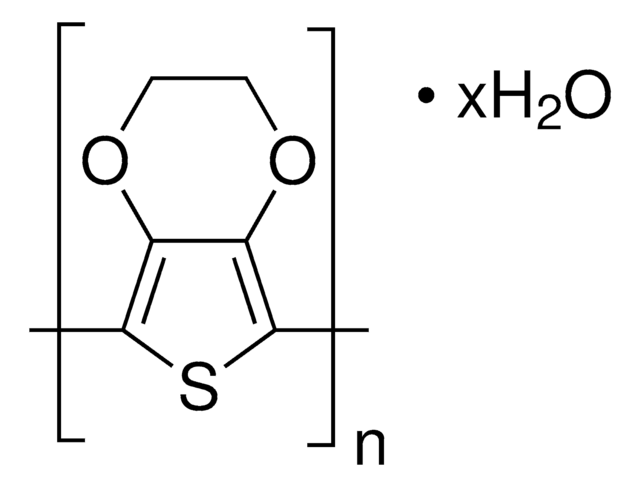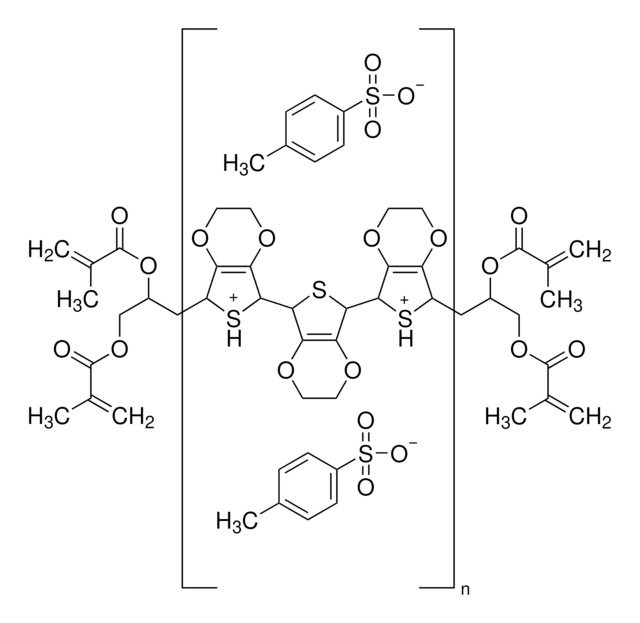768618
Poly(3,4-ethylendioxythiophen)-poly(styrolsulfonat)
dry re-dispersible pellets
Synonym(e):
PEDOT:PSS, Poly-(2,3-dihydrothieno-1,4-dioxin)-poly-(styrolsulfonat)
About This Item
Empfohlene Produkte
Form
dry re-dispersible pellets
Widerstand
200-450 Ω/sq
mp (Schmelzpunkt)
>300 °C
Suchen Sie nach ähnlichen Produkten? Aufrufen Leitfaden zum Produktvergleich
Allgemeine Beschreibung
- good optical properties
- high conductivity
- functionalization of nanomaterials
- high thermal stability
- easy processing
Anwendung
Orgacon DRY pellets can be re-dispersed in organic solvents such as ethanol. The resulting dispersion can be used in coating - or ink - formulations targeted for different applications.
Allow retention of PEDOT/PSS key properties in polar organic solvents; such as Ethanol; Surface Resistance: 200~450 Ohm/square; Visual Light Transmission: ~85%
Physikalische Eigenschaften
- Active chemical PEDOT/PSS
- Visual appearance blue-grey pellets
- Water content max. 15 % under 50% RH; 22°C
- Shelf life 24 month in storage conditions
Angaben zur Herstellung
Rechtliche Hinweise
Signalwort
Danger
H-Sätze
P-Sätze
Gefahreneinstufungen
Eye Dam. 1
Lagerklassenschlüssel
11 - Combustible Solids
WGK
WGK 3
Flammpunkt (°F)
Not applicable
Flammpunkt (°C)
Not applicable
Hier finden Sie alle aktuellen Versionen:
Besitzen Sie dieses Produkt bereits?
In der Dokumentenbibliothek finden Sie die Dokumentation zu den Produkten, die Sie kürzlich erworben haben.
Kunden haben sich ebenfalls angesehen
Artikel
Find advantages of inorganic interface layer inks for organic electronic & other applications.
Progress in Organic Thermoelectric Materials & Devices including high ZT values of >0.2 at room temperature by p-type (PEDOT:PSS) & n-type (Poly[Kx(Ni-ett)]) materials are discussed.
The application of conducting polymers at the interface with biology is an exciting new trend in organic electronics research.
Organic photovoltaics (OPVs) represent a low-cost, lightweight, and scalable alternative to conventional solar cells. While significant progress has been made in the development of conventional bulk heterojunction cells, new approaches are required to achieve the performance and stability necessary to enable commercially successful OPVs.
Unser Team von Wissenschaftlern verfügt über Erfahrung in allen Forschungsbereichen einschließlich Life Science, Materialwissenschaften, chemischer Synthese, Chromatographie, Analytik und vielen mehr..
Setzen Sie sich mit dem technischen Dienst in Verbindung.